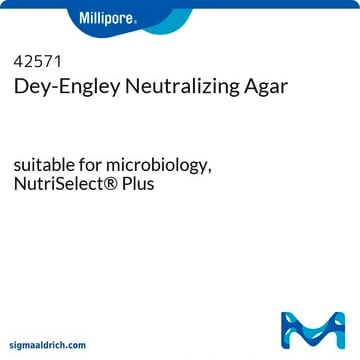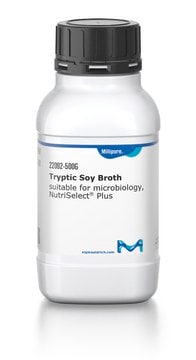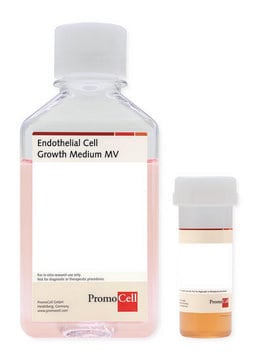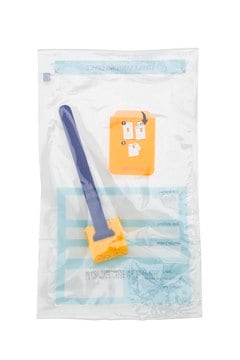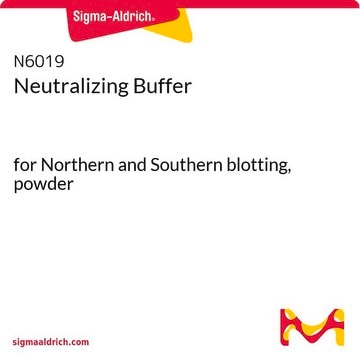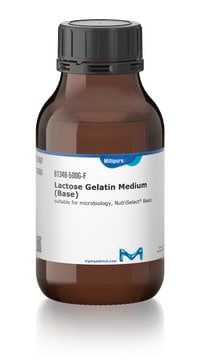D3435
Dey-Engley neutralizing broth
suitable for microbiology, NutriSelect® Plus
Synonym(s):
D/E Neutralizing Broth
About This Item
Recommended Products
sterility
non-sterile
Quality Level
form
powder
shelf life
limited shelf life, expiry date on the label
manufacturer/tradename
NutriSelect® Plus
final pH
7.6±0.2 (25 °C)
application(s)
environmental
food and beverages
pharmaceutical
sterility testing
surface monitoring
microbiology
storage temp.
2-8°C
suitability
nonselective for Bacillus spp.
nonselective for Escherichia coli
nonselective for Pseudomonas spp.
nonselective for Salmonella spp.
nonselective for Staphylococcus spp.
nonselective for bacteria (General Media)
nonselective for coliforms
Looking for similar products? Visit Product Comparison Guide
General description
Application
Biochem/physiol Actions
Components
Casein enzymatic hydrolysate5.00
Yeast extract2.50
Dextrose10.00
Sodium thiosulfate6.00
Sodium thioglycollate1.00
Sodium bisulfite2.50
Lecithin7.00
Polysorbate 805.00
Bromocresol purple0.02
Preparation Note
Footnote
The designations basic, plus, or prime are added to indicate the quality control level, from basic quality control to standard QC plus to prime for full regulatory compliance.
Legal Information
Signal Word
Warning
Hazard Statements
Precautionary Statements
Hazard Classifications
Skin Sens. 1
Storage Class Code
11 - Combustible Solids
WGK
WGK 3
Flash Point(F)
Not applicable
Flash Point(C)
Not applicable
Personal Protective Equipment
Choose from one of the most recent versions:
Already Own This Product?
Find documentation for the products that you have recently purchased in the Document Library.
Customers Also Viewed
Articles
An article concerning the detection, identification, differentiation, and cultivation of Pseudomonas species.
An article concerning the detection, identification, differentiation, and cultivation of Pseudomonas species.
An article concerning the detection, identification, differentiation, and cultivation of Pseudomonas species.
An article concerning the detection, identification, differentiation, and cultivation of Pseudomonas species.
Our team of scientists has experience in all areas of research including Life Science, Material Science, Chemical Synthesis, Chromatography, Analytical and many others.
Contact Technical Service